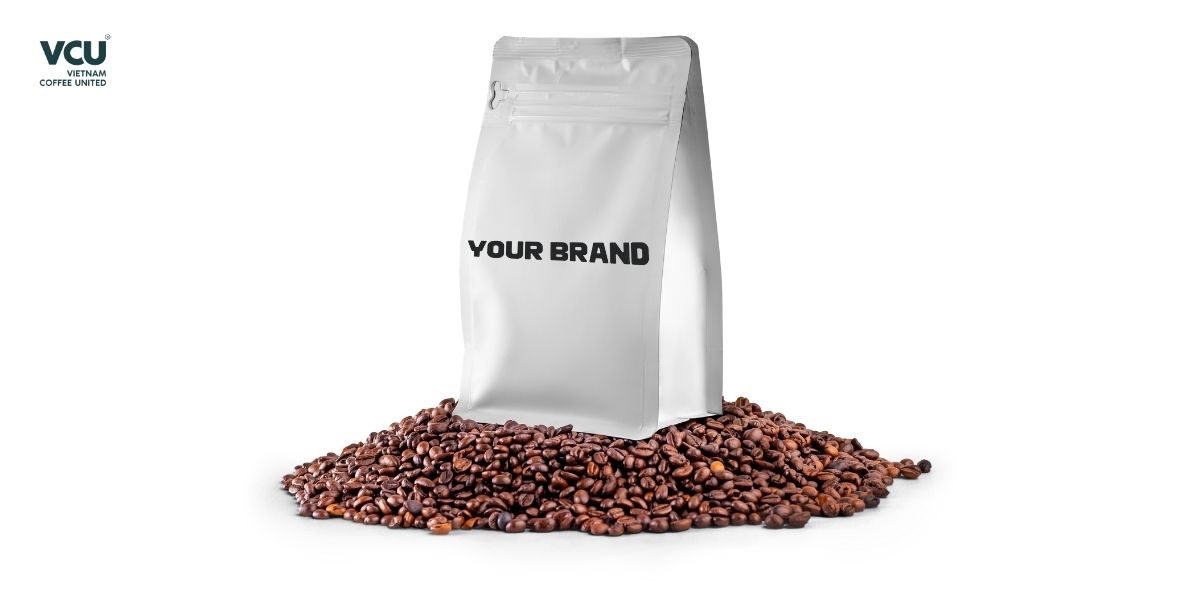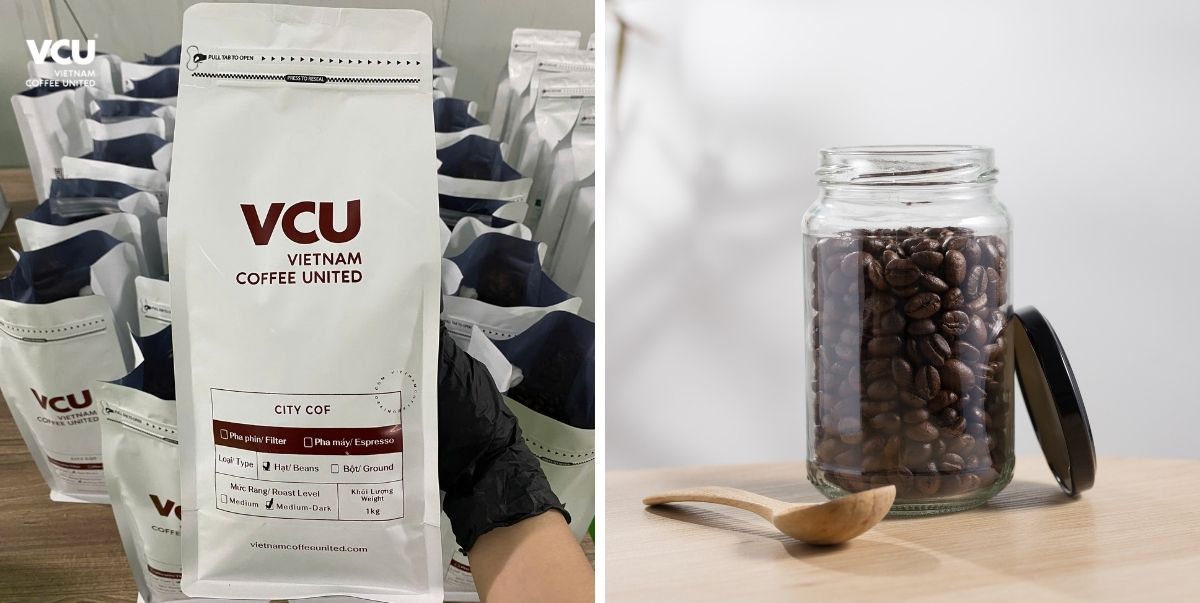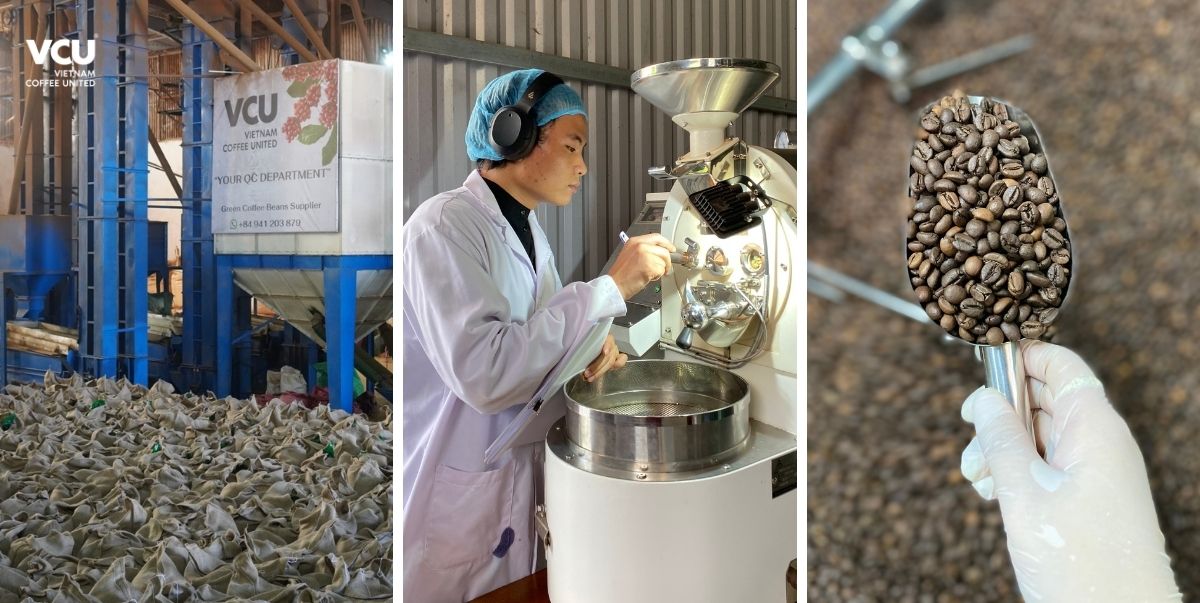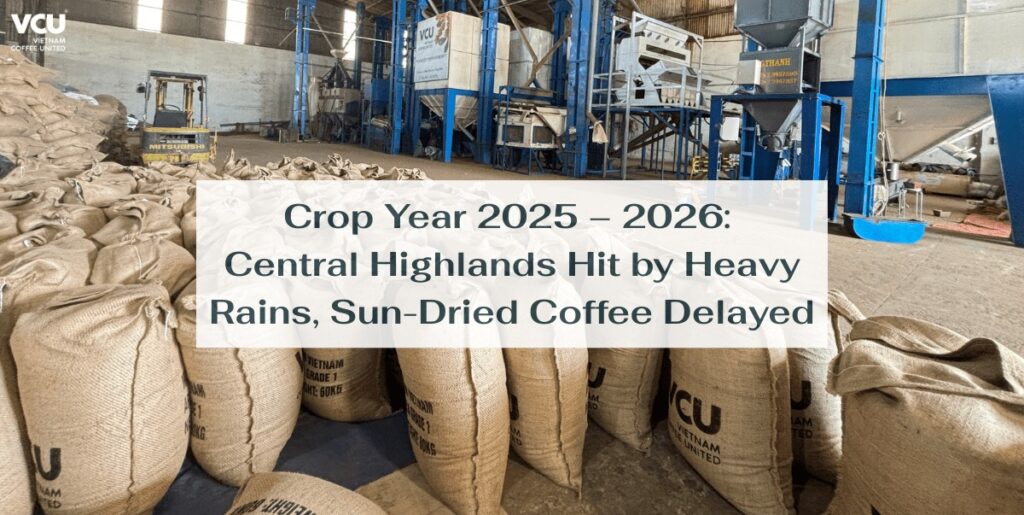What You Need to Know to Manage Coffee Quality in a Coffee Chain
In business, product quality is a key factor in retaining customers and building a sustainable brand. A delicious cup of coffee reaching the customer is the result of a thorough quality control process—starting from selecting suppliers and sourcing raw materials, to storage, brewing, and serving at the shop. In this article, VCU shares some key factors to help you manage coffee quality in a coffee chain and operate more effectively.
Establish Quality Standards from the Start
It’s a mistake not to set clear quality standards from the very beginning. Without them, each location may brew coffee in different ways, leading to inconsistency in quality and flavor. This inconsistency can affect the customer experience and make it difficult for customers to remember your brand for its signature taste.
Some suggestions for this stage include setting standard recipes for each coffee item, training baristas using unified processes, and implementing SOPs (Standard Operating Procedures) for guidance and regular evaluations.

Choose a Reliable and Stable Source of Raw Materials
The quality of coffee beans is the core factor that determines the flavor of your coffee. That’s why consistent raw material supply is essential when managing coffee quality in a coffee chain—whether you’re using commercial-grade, premium, or specialty coffee.
Start by working with a reputable supplier who can roast according to your specific profile, provide customization support until it’s exactly right, and maintain consistent quality and quantity. Clear traceability and related certifications are also important.
Today, many coffee chains choose to source roasted beans through OEM (Original Equipment Manufacturer) solutions to ensure consistent flavor, better quality control, and stable supply throughout their operations.

Read more: OEM Coffee and Private Label
Store Ingredients Properly
Proper storage is critical to maintaining coffee quality in your coffee chain. Even if you’re using high-quality beans, improper storage can still negatively impact flavor. In busy shop environments, where coffee bags are frequently opened and not stored under the right temperature or humidity conditions, the quality can degrade quickly.

Here are a few tips for proper storage:
-
Use zip-lock bags, one-way valve bags, or airtight containers once coffee bags are opened.
-
Keep coffee away from direct sunlight, high temperatures, and humid environments.
-
Once opened, coffee should ideally be consumed within 2–4 weeks. For daily use, only take out the amount needed to avoid waste.
Conduct Regular Quality Checks Across Your Coffee Chain
Set up routine quality checks at all locations to ensure each shop is following the same quality standards.
During these inspections, consider:
-
Does the brewed coffee match the intended roast profile?
-
Are the machines cleaned regularly?
-
Are baristas using the correct techniques?
-
Are staff attitudes contributing to a positive customer experience?
Train Your Baristas
Baristas are the final link in delivering a perfect cup of coffee. They are responsible not only for brewing correctly but also for representing your brand’s spirit, professionalism, and service style.

Listen to Customer Feedback
Customer feedback is a valuable data source for evaluating whether your coffee quality management is effective. Don’t hesitate to ask customers whether their coffee was enjoyable, if it tasted the same as before, or if it’s consistent with other locations they’ve visited.
This kind of feedback allows you to quickly address issues and make timely adjustments to stabilize your operations.
Managing coffee quality in a coffee chain isn’t always easy, but it’s absolutely achievable with the right processes, clear standards, and a strong team. Hopefully, the suggestions above help spark ideas for building a more professional and sustainable coffee chain.
Don’t forget to make use of management software tools to streamline your operations and improve efficiency.
If you’re looking for a reliable supplier of consistently high-quality roasted coffee or need OEM services to produce coffee under your own brand, get in touch with the VCU team today!

Read more:
Contact Information
VCU Joint Stock Company (VCU JSC)
Address:
– Roasting Facility: Residential Group 6, Chu Prong Town, Chu Prong District, Gia Lai Province
– Green Bean Facility: Ia Der Commune, Ia Grai District, Gia Lai Province
– Fanpage: VCU – Vietnam Coffee United
– Email: info@vietnamcoffeeunited.com







